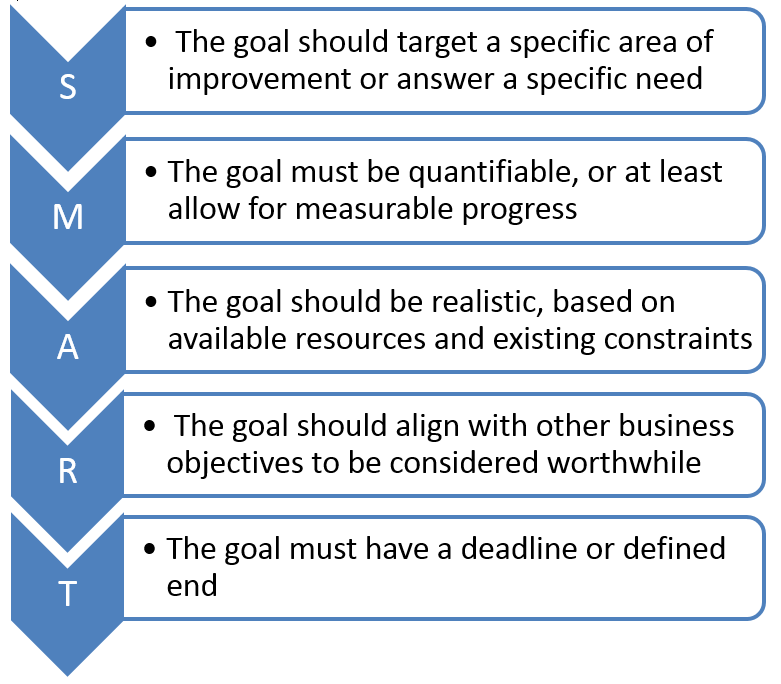Businesses set aims and objectives for a number of reasons. These goals serve as the foundation for a company's direction and help guide decision-making and resource allocation.
One of the main reasons businesses set aims and objectives is to establish a clear direction and purpose. Without a clear sense of where the company is headed, it can be difficult for employees to know what is expected of them and how to prioritize their work. Setting aims and objectives provides a roadmap for the company to follow, helping everyone to work towards a common goal.
Another reason businesses set aims and objectives is to measure and track progress. By setting specific, measurable, achievable, relevant, and time-bound goals (also known as SMART goals), companies can track their progress towards achieving their objectives and make adjustments as needed. This helps businesses stay on track and ensures that they are meeting their goals in a timely manner.
In addition to setting internal goals, businesses also set aims and objectives to meet the needs and expectations of external stakeholders. This may include meeting the needs of customers, fulfilling regulatory requirements, or meeting the expectations of shareholders. By setting clear goals that align with the needs and expectations of these stakeholders, businesses can ensure that they are meeting their obligations and building strong relationships.
Finally, businesses set aims and objectives to drive innovation and growth. By setting ambitious goals, companies can motivate their employees to think creatively and come up with new ideas and solutions to help the business achieve its objectives. This can help businesses stay ahead of the competition and continue to grow and evolve.
Overall, the process of setting aims and objectives is crucial for businesses of all sizes. It helps to establish a clear direction, track progress, meet the needs of stakeholders, and drive innovation and growth. By setting and working towards well-defined goals, businesses can increase their chances of success and achieve long-term stability and prosperity.







